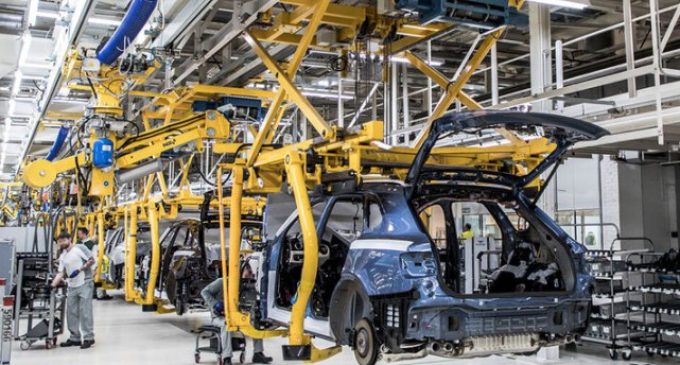Pathway for zero emission vehicle transition by 2035 becomes law in the UK

The UK now has the most ambitious regulatory framework for the switch to electric vehicles of any country in the world, thanks to new laws which commenced on 3 January 2024. Following extensive consultation with industry and manufacturers, the mandate provides them with the certainty they have called for to safeguard skilled British jobs.
The zero emission vehicle (ZEV) mandate sets out the percentage of new zero emission cars and vans manufacturers will be required to produce each year up to 2030. 80% of new cars and 70% of new vans sold in Great Britain will now be zero emission by 2030, increasing to 100% by 2035.
This follows the pragmatic decision taken by the Prime Minister to delay the ban on new diesel and petrol cars from 2030 to 2035, putting the UK in line with other major global economies such as France, Germany, Sweden and Canada. This allows time for consumers to make the choice to switch to electric, and to level up our charging infrastructure.
The UK has over-delivered on every carbon budget to date, having cut greenhouse gas emissions by nearly 50% since 1990. Recent Climate Change Committee analysis shows our more pragmatic approach has no material difference on our progress to cutting emissions, and households will now have more time to make the transition, saving some thousands of pounds at a time when the cost of living is high.
Technology and Decarbonisation Minister Anthony Browne said: “Alongside us having spent more than £2 billion in the transition to electric vehicles, our zero emission vehicle mandate will further boost the economy and support manufacturers to safeguard skilled British jobs in the automotive industry.
“We are providing investment certainty for the charging sector to expand our charging network which has already grown by 44% since this time last year. This will support the constantly growing number of EVs in the UK, which currently account for over 16% of the new UK car market.”
In a boost for the economy, the new laws will help households make the switch to electric, supporting growth of EV sales in the second-hand market and incentivising charging to roll out more widely across the country.
The government’s schemes to lower the upfront and running costs of owning an EV includes the plug-in van grant of up to £2,500 for small vans and £5,000 for large vans until at least 2025 and £350 off the cost of homeplace charge-points for people living in flats.
Latest statistics show that there has been a 41% increase in zero emission vehicles registered for the first time.
The UK’s charging network continues to grow at pace – there are now over 50,000 public chargepoints, with 44% more than this time last year, putting the country well on track to reach 300,000 chargepoints by 2030. The certainty of the ZEV mandate will give industry renewed confidence to invest in our infrastructure.
Additionally, last month the UK and EU agreed to extend trade rules on electric vehicles, saving manufacturers and consumers up to £4.3 billion in additional costs and providing long-term certainty for industry.
The UK’s approach to decarbonising transport has already attracted record investment in gigafactories and EV manufacturing, including:
- Nissan’s recent investment of over £3 billion to develop 2 new electric vehicles at their Sunderland plant
- Tata’s investment of over £4 billion in a new 40 GWh gigafactory
- BMW’s investment of £600 million to build next generation MINI EVs in Oxford
- Ford’s investment of £380 million in Halewood to make electric drive units
- Stellantis’ £100 million investment in Ellesmere Port for EV van production.
The government also continues to support the rollout of EV infrastructure. Applications for the first round of the £381 million Local EV Infrastructure Fund are currently being assessed. This funding will deliver tens of thousands more charge-points in local areas across England and transform the availability of charging for drivers without off-street parking. The government has also launched a £70 million pilot to support the deployment of ultra-rapid charging points at motorway service areas.
Andrew Brem, General Manager of Uber UK, said: “London is Uber’s top city for EVs worldwide, with well over 10,000 electric vehicles on the platform in the capital. However, the availability and up-front cost of EVs can still be a barrier for many drivers. The ZEV mandate coming into force is a significant moment which will help to drive down the costs of EVs and increase supply – accelerating the uptake of EVs over the next decade.”


























